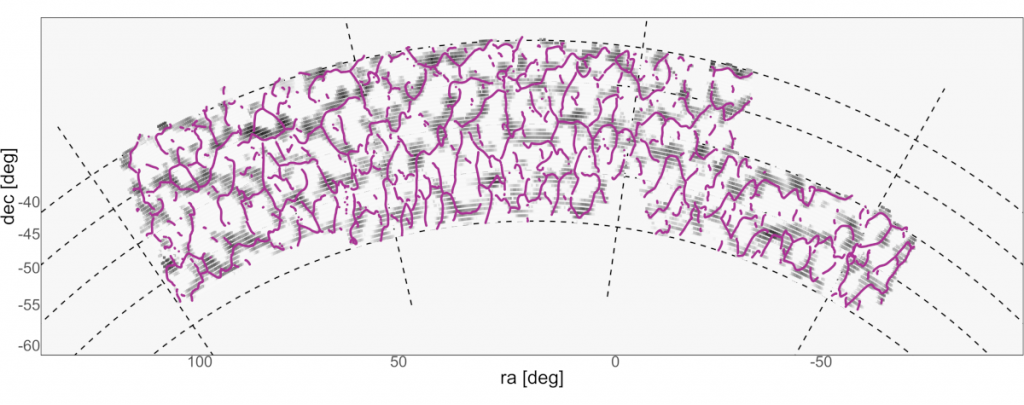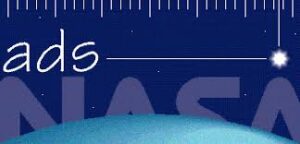Ridges in the Dark Energy Survey for cosmic trough identification
Cosmic voids and their corresponding redshift-aggregated projections of mass densities, known as troughs, play an important role in our attempt to model the large-scale structure of the Universe. Understanding these structures leads to tests comparing the standard model with alternative cosmologies, constraints on the dark energy equation of state, and provides evidence to differentiate among gravitational theories.
In this paper, we extend the subspace-constrained mean shift algorithm, a recently introduced method to estimate density ridges, and apply it to 2D weak-lensing mass density maps from the Dark Energy Survey Y1 data release to identify curvilinear filamentary structures.
We compare the obtained ridges with previous approaches to extract trough structure in the same data, and apply curvelets as an alternative wavelet-based method to constrain densities. We then invoke the Wasserstein distance between noisy and noiseless simulations to validate the denoising capabilities of our method.
Our results demonstrate the viability of ridge estimation as a precursor for denoising weak lensing quantities to recover the large-scale structure, paving the way for a more versatile and effective search for troughs.
Full citation: Moews et al., 2021, MNRAS, 500, Issue 1, p. 859–870
This project is a result from COIN Residence Program #6 – Chamonix, France/2019.
- Ben Moews, U. Edinburgh (UK)
- Morgan A. Schmitz, CNRS/U. Côte d’Azur (France)
- Andrew J. Lawler, Baylor/CUNY (USA)
- Joe Zuntz, U. Edinburgh (UK)
- Alex I. Malz, German Centre for Cosmological Lensing (Germany)
- Rafael S. de Souza, Shanghai Astronomical Observatory (China)
- Ricardo Vilalta, U. Houston (USA)
- Alberto Krone-Martins, U. California Irvine (USA)
- Emille E. O. Ishida, CNRS/UCA (France)




